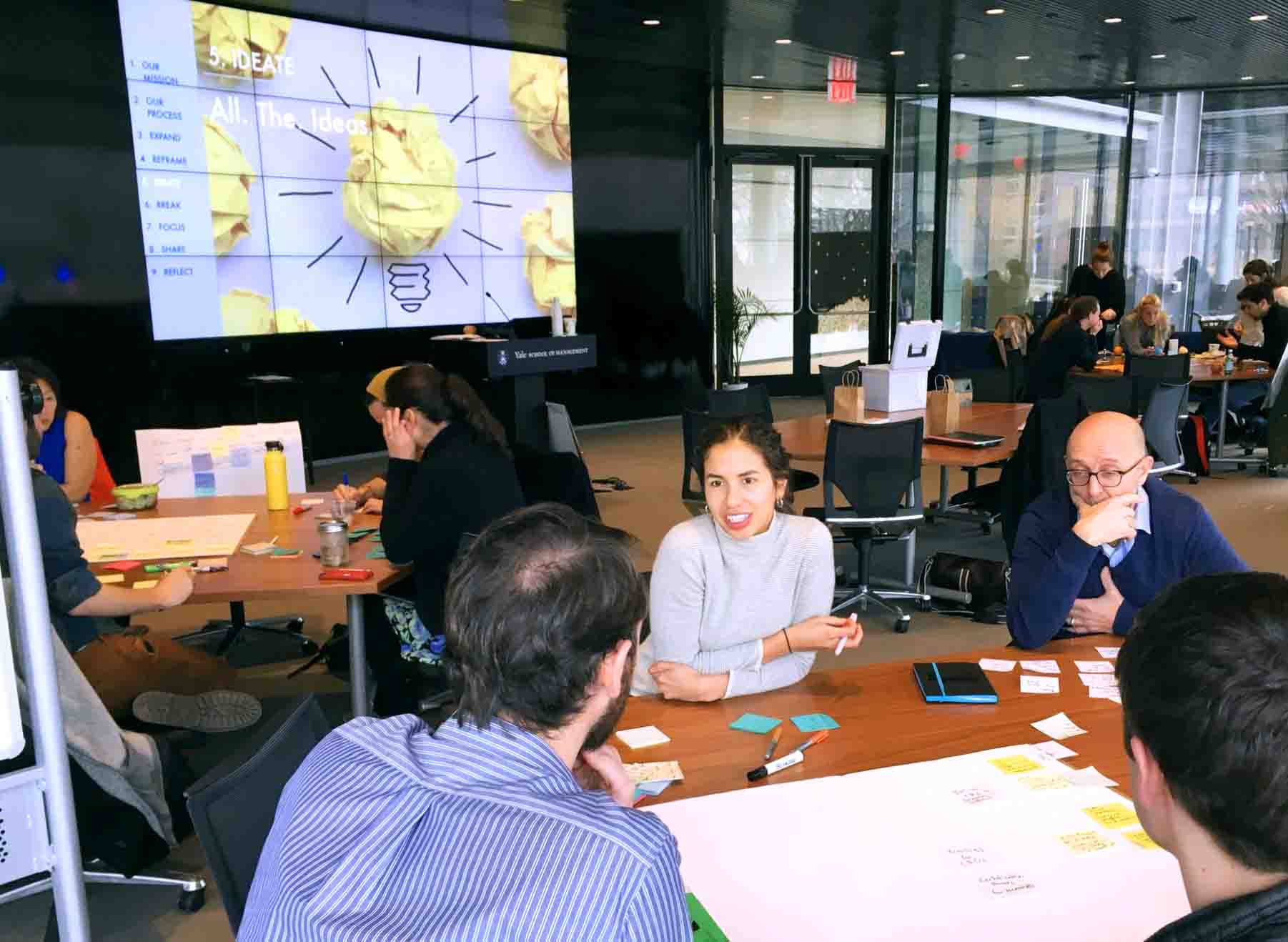
James Souder
Walking past Evans Hall in the School of Management last Friday afternoon, one would likely have noticed the array of Post-it notes stuck to the windows and the cries of “Yes, and?” coming from within. The event was not, as it seemed at a glance, an improvisational comedy session, but rather a GreenLight ideation workshop that drew roughly 30 student participants.
GreenLight, a program run by the Yale Center for Business and the Environment, was founded in 2014 by two graduate students pursuing joint degrees in the School of Forestry & Environmental Studies and School of Management. The program itself comprises a series of brainstorming workshops focused on solving problems at the crossroads of business and the environment.
Sessions are open to the entire Yale student body. In each one, leaders from various companies and organizations present a real problem or challenge that their company is facing with respect to the environment and natural resources.
“The students are working on a real challenge being faced by a company,” said Heather Fitzgerald, associate director of the Yale Center for Business and the Environment. “They’re getting their hands dirty, and it’s also a great learning experience away from the classroom. The clients are getting fantastic feedback too.”
Former companies that GreenLight has workshopped include Adidas and General Electric, according to Stuart DeCew SOM ’11 FES ’11, executive director of the Yale Center for Business and the Environment. Once the representative has presented the issue, the program’s coordinators — Billy Marks SOM ’18, Claudia Sosa Lazo SOM ’18 and James Souder FES ’18 — split participants into small groups and begin to direct them in how they might go about approaching the issue and finding potential solutions. After a few hours of tossing around ideas and collaborating, each group pitches its idea to the corporate representatives, who offer feedback.
Last Friday’s session was focused on a challenge presented by ERM, an environmental and health consulting company. Participants were asked to consider the question, “How might a technical firm like ERM work with corporate decision-makers to help them better understand and articulate their climate-related financial risks and opportunities?”
As soon as the coordinators gave the go-ahead, each of the four groups began scribbling ideas down on giant notepads and discussing them intensely.
Marks, Sosa Lazo and Souder directed participants to dissect and reframe the question, encouraging liberal use of Post-it notes and whiteboards in the ideation process. They urged participants to build on one another’s ideas and led the groups in quick teamwork exercises.
At the end of the session, each group presented its ideas, which ranged from the development of a new computer program to a certification program for executives, to the ERM representatives in attendance.
“We loved the process and were very impressed by the assembled team and the three leaders,” said Matt Haddon, a partner at ERM. “I am very excited about the possibilities of more collaboration with Yale students working at the intersection of business and the environment in the future — we increasingly see that the ability to move between the different worlds of technical knowledge and business leadership will be a valuable skill set.”
Clients are often, but not always, drawn from the alumni network of Yale SOM, according to Souder. The development of the workshopping question is a time-intensive process, and the GreenLight coordinators work with clients for several months to refine the question, ensuring that it is broad enough to attract a wide range of students while also focused enough to result in feasible ideas.
The next GreenLight workshop will feature the ride-sharing company Lyft on Friday, Feb. 23. According to Souder, this workshop will examine the ways that Lyft can combine policy, product and user experience strategies to incentivize the use of ride sharing services. He added that these ridesharing services have the potential to reduce greenhouse gas emissions and improve urban areas by taking cars off the road in cities. Souder said he hopes the workshop will attract students from all walks of life who can address the question in a multidisciplinary fashion.
GreenLight began hosting workshops in 2015 and has held a total of 16 sessions thus far, according to the program’s website.
Madison Mahoney | madison.mahoney@yale.edu







